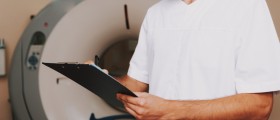
Aortic Disease: 4 Complications Of An Aortic Aneurysm
Aortic aneurysms tend to grow very slowly, usually showing few to no symptoms, until they get so big that they may burst at any time. These are some of the frequent, as well as most important complications of aortic aneurysms.

Anti-Inflammatory Diet: Can A Fruit-Rich Diet Lower Your Risk Of An Aortic Aneurysm?
An apple a day keeps the doctor away, right? Studies have shown that a diet high in fruit may help prevent numerous vascular diseases, associating it with a decreased risk of aortic aneurysms, as well as their complications.

Aortic Disease: What Are The Causes Of Infected (Mycotic) Aneurysms?
An infected, or mycotic, aneurysm develops when bacteria spread into the aortic wall, weakening it, and causing it to expand. These type of aneurysms are highly prone to rupture. What do you need to know?

Aortoenteric Fistula (AEF): Symptoms, Diagnosis, And Treatment
Aortoenteric fistula is a rare, although a very serious complication related to aortic disease, generally characterized by blood loss via the GI tract, as well as infectious symptoms, and therefore demands urgent medical treatment.

Aortic Disease Treatment: What Surgeries May Be Recommended For An Aortic Aneurysm?
Many factors are taken in mind before operating on patients with aortic aneurysm, such as the type of aneurysm, the risk of it rupturing, other chronic diseases, and possible complications, so every procedure is differently tailored for each patient.

What Happens During Endovascular Aortic Aneurysm Repair?
Advancements in medical technologies have paved the way for new methods in aortic surgery, such as minimally invasive methods of treating aneurysms, which are shown to be effective and safe, while reducing the time spent in hospital after the procedure.

Open Abdominal Or Open Chest Repair: How To Prepare, What Are Risks, What To Expect After Surgery
The main principle of aortic surgery is to reduce the risk of complications, like aortic dissection or rupture, by reverting the aorta to normal dimensions. Open surgical repair is a safe procedure showing satisfying postoperative results in patients.

Can Maternal Obesity During Pregnancy Increase The Risk For Congenital Heart Disease In Infants?
Can being obese during pregnancy increase the risk that the baby will be born with a congenital heart disease? Learn what recent research revealed.

Aortic Disease: How Are Aortic Aneurysms Treated?
When it comes to treating aortic aneurysms, surgical replacement of the dilated part of the aorta is the only effective way. In some patients, however, different approaches may be required, because not every case is eligible for operation.

Why Your Doctor May Recommend Genetic Testing If They Suspect Cardiomyopathy
If you have cardiomyopathy you may be unaware, since it often has no symptoms. It still puts you at risk of sudden death. Genetic testing comes in as a valuable tool that can help with early diagnosis and prevention of complications. Here's how it works.

